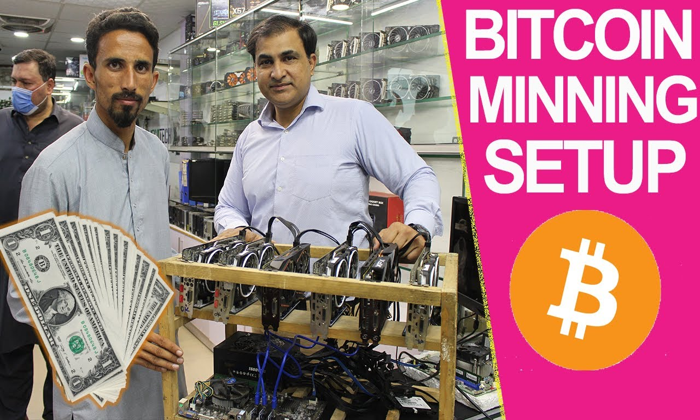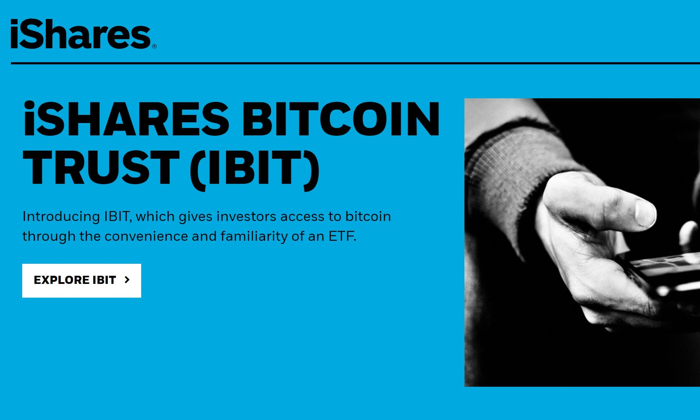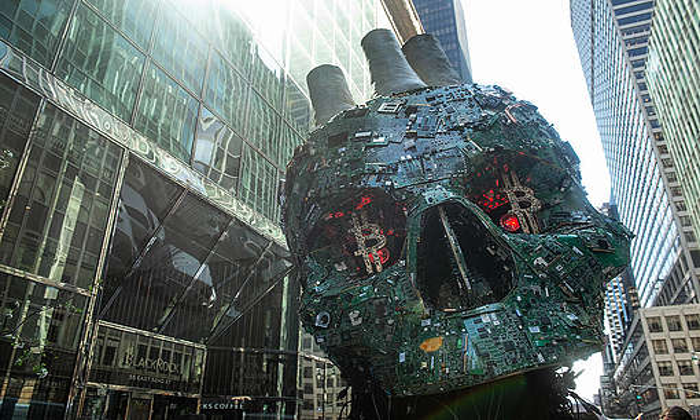The WLFI airdrop has generated significant buzz in the cryptocurrency space, particularly in relation to its USD1 stablecoin initiative. Recently, World Liberty Financial announced that a community proposal to airdrop this stablecoin to eligible token holders received an overwhelming 99.96% approval during its governance vote. This move not only highlights the community’s enthusiasm but also raises questions about the influence of whale dominance, as a significant portion of the voting power was concentrated in just a few addresses. With around 7 billion tokens allocated for this airdrop, the impact on WLFI voting power and the overall governance of the cryptocurrency could be profound. As excitement builds, the project faces political scrutiny and must navigate complex issues surrounding decentralization and the potential risks they present to the broader financial system.
In the world of digital currencies, the recent announcement of the WLFI airdrop has sparked interest and discussions among investors and analysts alike. This initiative, centered on the distribution of USD1 stablecoins to eligible participants, showcases a strategic move by World Liberty Financial to enhance engagement and utility within its community. However, it has also shed light on concerns regarding governance structure and the implications of concentrated voting power, especially among major holders, often referred to as whales. While these large stakeholders wield significant influence, the project’s approach raises critical questions about the balance of power in cryptocurrency governance. As the initiative unfolds, stakeholders will need to consider the ramifications of such distributions on both the integrity and future of WLFI.
WLFI Airdrop: Key Details and Community Impact
The recent approval of the WLFI USD1 airdrop marks a significant development in the World Liberty Financial ecosystem, garnering nearly unanimous support from the community. A staggering 99.96% of participants in the governance vote cast their support for this initiative, resulting in the allocation of approximately 7 billion tokens. This substantial backing indicates a strong collective belief in the project’s potential to enhance liquidity and utility within the WLFI framework. With the rollout expected soon, community members are eagerly anticipating the detailed distribution plan for the airdrop, which aims to reward eligible token holders and stimulate engagement.
However, while the community is largely optimistic about the WLFI USD1 airdrop, there are underlying concerns about the governance structure highlighted during the voting process. The concentration of voting power among a select few whales raises questions about the decentralization of decision-making within the community. Critics argue that this scenario could lead to disproportionate influence over future governance proposals, undermining the democratic nature that decentralized autonomous organizations (DAOs) strive to uphold. As WLFI navigates these challenges, transparency and inclusivity will be essential in fostering trust and confidence among all stakeholders.
Whale Dominance in WLFI Governance Voting
The recent governance vote for WLFI’s USD1 airdrop revealed striking insights into the influence of whale dominance within the project. Data showed that just five wallet addresses were responsible for over 40% of the votes, with one address alone holding 1 billion WLFI tokens. This massive concentration of voting power raises valid concerns about the equitability of governance processes in the project. Critics argue that such dominance could risk the foundational ideals of decentralization that underpin cryptocurrency governance, challenging the very essence of democratic participation that DAOs aspire to ensure.
As World Liberty Financial prepares for the airdrop, attention must be focused on the implications of such concentrate voting power. With whales controlling significant portions of the token supply, there is a pressing need for mechanisms to balance voting rights and prevent a small group from monopolizing decision-making. A more equitable distribution of governance tokens could enhance community involvement and ensure that diverse perspectives are represented in future proposals. Addressing these issues proactively will be essential for WLFI to sustain long-term growth and maintain the confidence of its investor base.
Political and Ethical Scrutiny Surrounding WLFI and USD1 Airdrop
As World Liberty Financial approaches the implementation of its USD1 airdrop, the project faces mounting political scrutiny that warrants attention. Criticism emerges not only from lawmakers but also from the cryptocurrency community as allegations of whale dominance cast doubt on the project’s commitment to decentralized governance. U.S. lawmakers have expressed concern about WLFI’s ties to the Trump family and its substantial foreign investment reserve, with troubling accusations that investors connected to criminal activities may be involved. These ethical dilemmas promote the need for a deeper investigation into the project’s governance integrity.
The backdrop of political scrutiny intensifies with the involvement of controversial figures like Justin Sun, further complicating WLFI’s narrative. Lawmakers have addressed the ethical implications of the project’s financial ties, particularly highlighting the potential conflicts inherent in reserving a significant share of tokens for foreign investors. In light of such concerns, WLFI’s response must emphasize transparency and ethical governance to reassure stakeholders. Zach Witkoff’s assertion that the world needs solutions like WLFI and USD1 must align with actions that prioritize accountability and ethical practices, thus preserving investor trust while navigating political landscapes.
The Future of WLFI with USD1 Airdrop Implementation
Looking ahead, the successful implementation of WLFI’s USD1 airdrop could significantly reshape the landscape of token governance and community involvement. As the project prepares for the rollout, stakeholders are keen to discover how the airdrop will enhance liquidity and engagement within the WLFI ecosystem. A well-executed airdrop could attract new participants and invigorate existing token holders, thereby fostering a more robust and decentralized community. The anticipation surrounding this event highlights the vital role of transparency and clear communication in guiding user expectations and building lasting connections.
Moreover, the dynamics of governance within WLFI will likely evolve as the airdrop unfolds. In addressing concerns about whale dominance, the project could implement strategies to democratize voting power, such as introducing vesting periods or distributing governance tokens more equitably. Engaging with the community to establish a consensus on governance practices will be crucial for WLFI to maintain its integrity and ensure that all voices are heard in future decision-making processes. As the project charts its path forward, navigating these enhancements will be essential to securing a strong foundation for long-term success.
Role of Decentralization in WLFI Governance
Decentralization remains a cornerstone principle that many cryptocurrency initiatives, including World Liberty Financial, aim to uphold. The recent voting patterns observed during the governance discussions regarding the USD1 airdrop underscore the importance of this principle. With a few whales exercising disproportionate voting influence, it becomes increasingly imperative for WLFI to reassess its governance framework to ensure that it reflects the true essence of a decentralized model. The community’s trust hinges on the belief that every member, regardless of their holding size, has an equal opportunity to participate in governance.
To address these concerns, WLFI could explore implementing governance models that empower smaller token holders. This could involve creating tiered voting systems or encouraging community representation through elected positions within the DAO. Ensure that every community member feels represented in governance discussions is crucial for building a collaborative environment that thrives on diverse input and innovation. By reaffirming its commitment to decentralization, WLFI can not only mitigate the risks associated with whale dominance but also enhance its legitimacy within the broader cryptocurrency landscape.
Encouraging Community Engagement in WLFI
As World Liberty Financial prepares for the USD1 airdrop, stimulating community engagement is essential for the project’s success. A vibrant and active community can foster an environment that encourages participation, collaboration, and innovation. WLFI has multiple avenues to enhance community engagement—through educational initiatives, social media interactions, and open forums for discussion about governance practices. By actively involving the community in the decision-making process, WLFI can promote transparency and inclusivity, vital components for a sustainable and thriving ecosystem.
Encouraging participation does not only mean amplifying voices but also ensuring that feedback is consistently taken into account in governance proposals. WLFI can establish direct channels for feedback where community members can voice their opinions and suggestions regarding governance and project features, facilitating a two-way dialogue. As more individuals feel empowered to contribute, it can cultivate a sense of ownership and responsibility, vital for the project’s long-term vitality. Engaging the community in meaningful ways will ultimately strengthen the foundation upon which WLFI is built.
Understanding Whale Dynamics in Cryptocurrency
Whale dynamics refer to the considerable influence that large holders of cryptocurrency can exert on market movements, governance decisions, and liquidity. Within the context of WLFI, this phenomenon has been notably visible during the voting process for the USD1 airdrop, where a limited number of addresses held an overwhelming percentage of the voting power. The implications of these dynamics can greatly affect both investor sentiment and regulatory perception of the project. Understanding whale behavior is crucial for stakeholders seeking insights into governance outcomes and overall market stability.
Furthermore, as projects like WLFI navigate the complexities introduced by whale activity, the need for balanced governance models becomes increasingly apparent. Strategies could include measures to mitigate the effects of whale dominance, such as the introduction of liquidity-based voting systems or caps on voting power relative to total token supply. For the WLFI community, recognizing and addressing these dynamics will be central to preserving the integrity of governance processes and ensuring that diverse stakeholder interests continue to be represented as the project evolves.
Regulatory Considerations for WLFI and USD1
As World Liberty Financial advances with its USD1 airdrop, it is imperative to engage with regulatory considerations that may arise from the initiative. Regulatory scrutiny has intensified, particularly given the project’s ties to prominent political figures and foreign investment dynamics. U.S. lawmakers have flagged potential ethical questions that could influence investor trust and overall project viability. As WLFI navigates these regulatory waters, understanding guidelines and requirements for compliance will be pivotal in avoiding future controversies and sustaining a positive relationship with authorities.
Moreover, proactivity in addressing regulatory challenges can enhance WLFI’s reputation within the cryptocurrency arena. Transparency in operations, including a comprehensive disclosure of token allocation and investor backgrounds, can reinforce the project’s legitimacy. Building rapport with regulatory bodies and demonstrating commitment to ethical governance can also create a safer environment for investors, reassuring them of the project’s intentions. By staying ahead of regulatory issues, WLFI can mitigate risks while reinforcing its dedication to operating within the boundaries of the law.
Building a Sustainable Ecosystem for WLFI
The long-term sustainability of the World Liberty Financial project hinges on multiple critical factors, including community engagement, regulatory compliance, and decentralized governance. As WLFI anticipates the impact of the USD1 airdrop, crafting a robust and inclusive ecosystem will be paramount for its continued success. A sustainable ecosystem nurtures trust, fosters innovation, and drives participation, three cornerstones essential for thriving within the competitive cryptocurrency landscape. WLFI should focus on creating mechanisms that allow for the diverse voices of its community to shape the direction of the project.
Additionally, monitoring and adapting to the evolving cryptocurrency landscape is crucial. Changes in market dynamics, regulatory environments, and community expectations necessitate an agile approach that accommodates growth while minimizing risks. Sustainable practices, such as responsible tokenomics and altruistic project governance, can ensure WLFI remains resilient against market fluctuations and external pressures. By prioritizing a holistic approach to sustainability, WLFI can lay the groundwork for a lasting and impactful presence in the cryptocurrency ecosystem.
Frequently Asked Questions
What is the WLFI airdrop and how does it work?
The WLFI airdrop is a distribution of the USD1 stablecoin by World Liberty Financial aimed at eligible token holders. This airdrop was approved by a governance vote that saw 99.96% participant support, wherein around 7 billion WLFI tokens are allocated for distribution. The final rollout details will be announced soon.
Why are whales dominating the WLFI airdrop voting process?
Whales are dominating the WLFI airdrop governance process because a small number of wallet addresses control a significant portion of the voting power. In the recent vote, five addresses accounted for over 40% of the total votes, raising concerns about decentralization within World Liberty Financial’s governance model.
What impact does whale dominance have on WLFI’s governance and airdrop initiatives?
Whale dominance can lead to skewed decision-making processes in WLFI’s governance, as seen in the USD1 airdrop vote. With a few addresses holding significant voting power, it raises concerns over the decentralization of cryptocurrency governance and could affect the equitable distribution of the airdrop among all holders.
What concerns have been raised about the WLFI and USD1 airdrop regarding political scrutiny?
The WLFI and USD1 airdrop have faced political scrutiny due to concerns over the project’s ties to controversial figures and potential ethical implications. Lawmakers have questioned the project’s investor composition and the significant foreign investment reserved, as well as connections to individuals under investigation, raising red flags about transparency and compliance.
How does WLFI’s governance structure affect token holder participation in initiatives like the airdrop?
WLFI’s governance structure, heavily influenced by whale dominance, can limit token holder participation in initiatives such as the USD1 airdrop. When a few holders control substantial voting power, it can diminish the influence of smaller holders and potentially lead to decisions that do not reflect the broader community’s interests.
What are the future prospects for the WLFI airdrop after the recent governance vote?
Following the positive governance vote for the WLFI airdrop, future prospects appear promising, although the project retains the flexibility to cancel or adjust the airdrop based on operational readiness. The announcement of finalized details will be crucial for assuring all token holders of their eligibility and the distribution process.
What precautions is WLFI taking amid the controversy surrounding the airdrop?
In light of scrutiny and controversy surrounding the WLFI airdrop, including allegations of whale dominance and ethical concerns, WLFI is expected to maintain transparency and careful operational management. Officials have indicated their commitment to providing solutions while navigating the challenges posed by regulatory attention.
| Key Points | Details |
|---|---|
| Airdrop Approval | WLFI has approved a community proposal for a USD1 airdrop with overwhelming support of 99.96% from participants. |
| Voting Power Concentration | Over 40% of votes came from just five addresses, raising concerns about whale dominance in governance. |
| Regulatory Scrutiny | The project is under scrutiny due to connections with former President Trump and concerns regarding foreign investor dominance. |
| Political Allegations | Democratic lawmakers have criticized the project, questioning the ethics around a significant investment from Justin Sun. |
| Responses from Co-founders | Zach Witkoff defends WLFI, claiming that the project is essential for global financial solutions. |
Summary
The WLFI airdrop represents a significant step for World Liberty Financial amid notable scrutiny from lawmakers regarding its governance structure and political affiliations. With over 40% of the voting power concentrated in just five wallet addresses, there are serious concerns about the influence of ‘whales’ in decision-making processes. The upcoming airdrop promises to engage eligible token holders while balancing operational readiness and regulatory compliance. As WLFI prepares for this rollout, stakeholders are closely monitoring how the project navigates the complex political and ethical landscape surrounding its associations and investor base.
The WLFI airdrop is generating significant buzz as World Liberty Financial rolls out its ambitious plan to distribute the USD1 stablecoin to eligible token holders. This move has garnered overwhelming community support, with a staggering 99.96% approval during the governance vote that concluded on May 13. However, the excitement around the WLFI airdrop is tempered by concerns over whale dominance, as just a handful of wallet addresses wield a disproportionate amount of voting power. With over 40% of the votes coming from merely five addresses, the fairness of the cryptocurrency governance process is under intense scrutiny. As WLFI prepares for the airdrop, the project remains vigilant about its operational readiness, emphasizing the need for a robust and equitable distribution strategy.
The upcoming distribution of cryptocurrency via the WLFI airdrop represents a pivotal moment for World Liberty Financial and its ambitious USD1 stablecoin initiative. This significant financial event has attracted considerable attention not only for its extensive token allocation but also for the governance implications tied to whale influence over the voting process. Concerns are rising about the balance of power in this decentralized initiative, as a small number of holders control a large swath of the airdrop’s voting rights. This scenario highlights the ongoing debate in the crypto community about equity and representation in blockchain governance. As the project gears up for its airdrop, stakeholders are keenly observing how these dynamics will play out, especially in the context of potential regulatory and political scrutiny.















